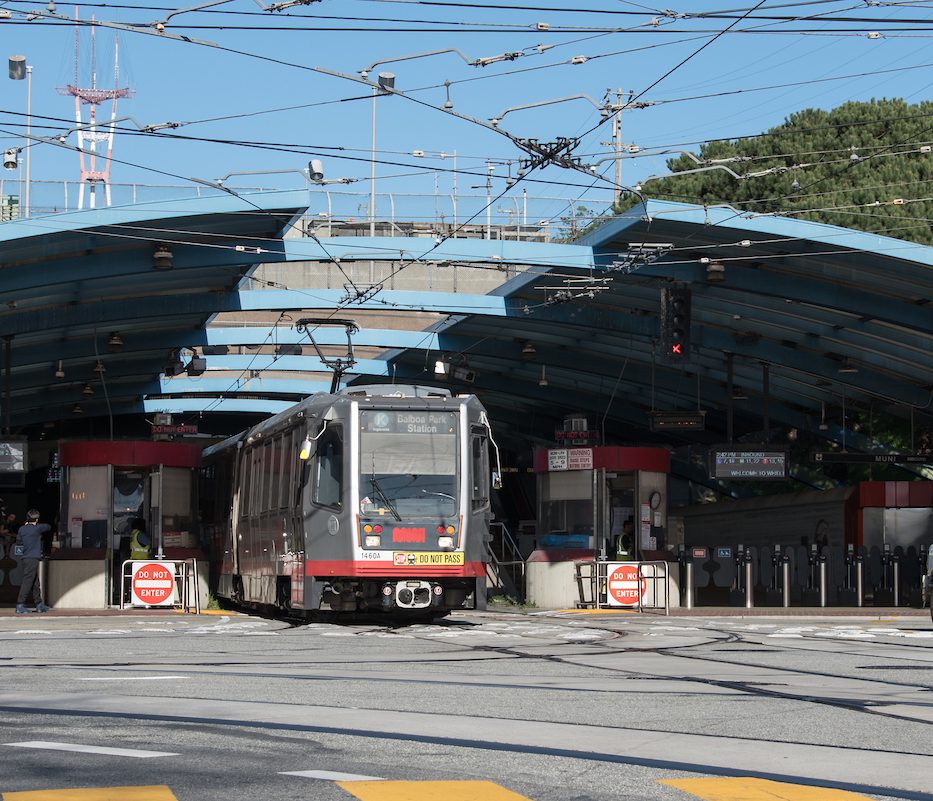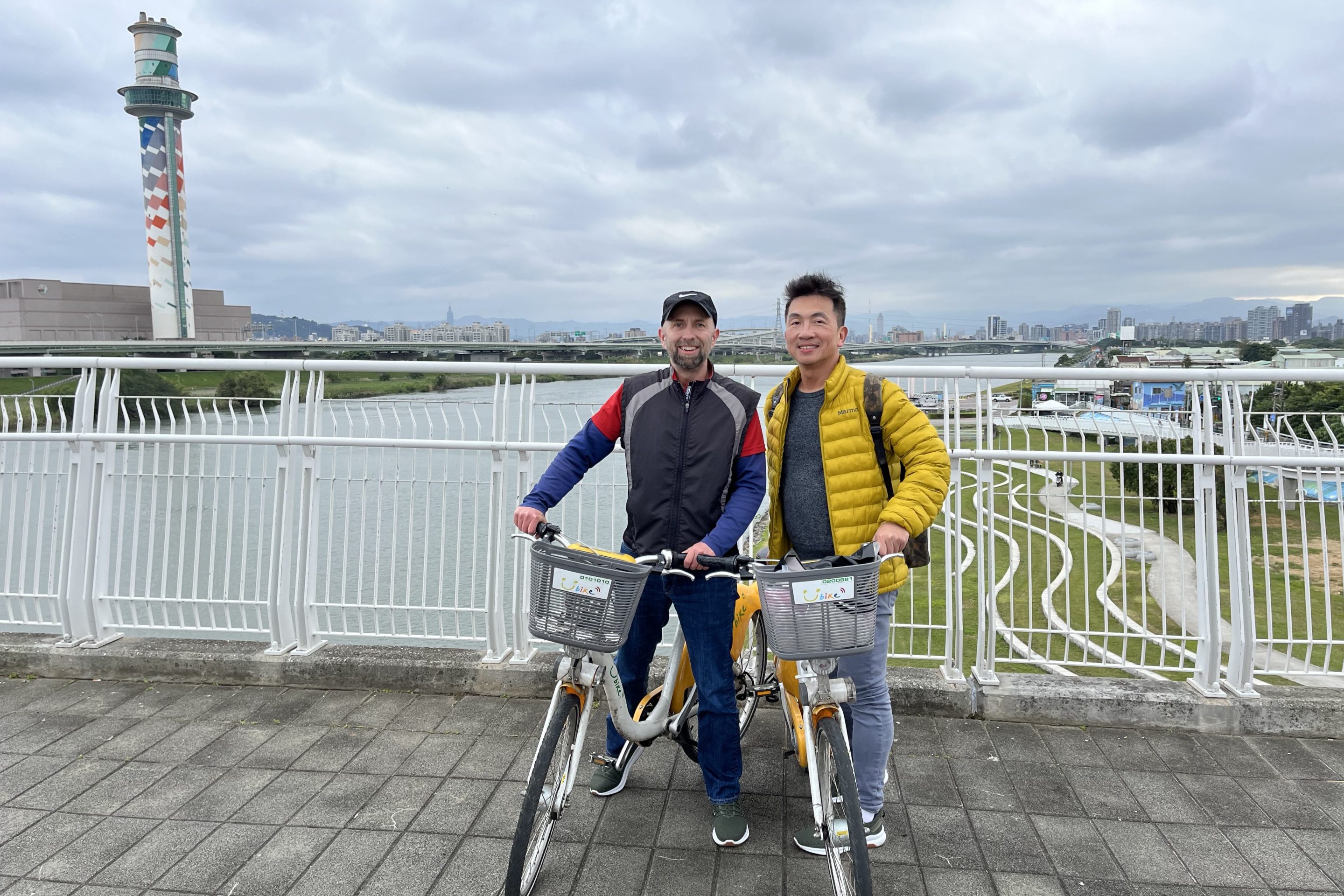Editor's note: the advocates over at Transform fought hard for a bevy of state and local propositions near and dear to the safe-and-livable-streets/urbanist community. Some passed, some didn't. Streetsblog thought readers would be interested in the organization's round-up of the results.
***
Most people have been focused on the results of last week’s presidential election, so it can be easy to miss the results of state and local ballot measures that could be consequential. Transform endorsed several state and local measures that will move forward our agenda for transit and housing equity and climate resilience. It wasn’t all good news, especially at the state level, but there is still a lot to celebrate.
California proposition results: some hope in an atmosphere of anxiety
California showed the complexity of its political landscape in the results for propositions on the November ballot. Voters added the right to same-sex marriage to the state constitution but supported a punitive anti-crime measure and refused to outlaw forced labor in prisons. The measures Transform supported at the state level faced the same fate, with a mix of positive and disappointing results.
A win for climate
Proposition 4, a $10 billion bond to fund climate change mitigation projects, passed with 58.9 percent support. This measure is a fraction of the amount California needs to spend on making our communities more climate-resilient, but it shows that Californians understand the seriousness of climate change and are willing to invest in mitigation measures.
We see this vote as an affirmation of our mission to ensure underserved communities can live healthy lives, free from fear of climate catastrophe.
Losses for housing
The failure of Proposition 5, which would have reduced the percentage of votes needed to pass local bonds for affordable housing and other public infrastructure from two-thirds to 55 percent, is a setback. Regional Measure 4, a $10 billion Bay Area housing bond, was pulled from the ballot before the election because backers feared it wouldn’t get enough support to pass. If Prop 5 had passed, RM 4 could have passed on a future ballot with 55 percent. Transform and our allies will continue to campaign for this vital affordable housing measure, but the path to victory just got a bit steeper.
Additionally, Proposition 33 failed and the related Proposition 34 passed. Both Prop 33 and Prop 34 received a lot of media attention and heavy advertising, causing confusion among voters and highlighting the influence of special interest groups.
Prop 33 would have repealed the restrictive and outdated Costa-Hawkins Act and allowed California cities and towns to determine the best local rent control regulations. With the failure of Prop 33, communities are still hamstrung in their efforts to protect existing affordable housing stock by the restrictive state law, which prevents rent control on homes built after 1995, condos, and single-family homes.
Proposition 34, which restricted spending of a single charity, AIDS Healthcare Foundation, narrowly passed. Transform opposed this bill as it was written by special interest groups trying to limit the housing related advocacy efforts of the AIDS Healthcare Foundation.
California voters are usually more savvy, rejecting efforts by special interest groups to sway their vote, but in 2024, the message appears to have landed.
Local ballot measures include landmark victories
Transform supported local ballot measures relating to transit, housing, active transportation, and open space in several Bay Area communities. Voters concurred with Transform’s endorsements on local ballot measures everywhere except the North Bay, where all but one of the measures we endorsed went the opposite way.
San Francisco ballot measures
San Francisco voters supported community amenities, safety, car-free spaces, and transit.
- Prop B: Transform supported this bond measure to fund community health centers, shelter beds, and street and sidewalk safety. It needed a two-thirds majority to pass, and it made that with a comfortable margin.
- Prop G: Transform supported this affordable housing funding measure, which passed with more than 55 percent voting yes.
- Prop K: Transform supported this ballot measure to permanently turn a stretch of the Great Highway near Ocean Beach into a car-free bicycle and pedestrian path. It has passed by an 8 percent margin, showing strong support for more car-free spaces.
- Prop L: Transform endorsed this funding measure to tax ride-hail operators and use the money to fund the city’s Muni public transit system, which is struggling to preserve services amid a funding crisis. The measure passed by more than 13 percent, showing significant support for transit funding. However, because Prop M gained a larger percentage of votes, Prop L will not be implemented. Prop M is set to overhaul how business taxes are implemented and it negates Prop L’s proposed new tax structure.
East Bay ballot measures:
East Bay voters supported funding for active transportation infrastructure and stronger tenant protections.
Albany
- Measure C: Transform supported this local measure to levy a tax to provide funding for sidewalk and path improvements. It passed with almost 70 percent of the vote.
Berkeley
- Measures BB and CC: Transform supported BB to expand tenant protections and opposed CC to limit tenants’ rights. If both measures had passed, the one with the most votes would have gone into effect. However, voters decisively rejected Measure CC, and Measure BB is ahead in the vote count and appears headed for victory.
- Measures EE and FF: These two competing measures to fund safe streets would also implement the one with the most votes if both passed. Transform supported the stronger measure, FF, and opposed EE. Voters agreed, passing FF and voting down EE.
- Measure W: Transform supported this parcel tax to fund homeless services, and so did Berkeley voters.
South Bay ballot measures:
- East Palo Alto Measure JJ: Transform supported this measure to fund rental assistance and affordable housing preservation. Voters supported it overwhelmingly, with more than 76 percent in favor.
North Bay ballot measures:
The North Bay followed a statewide trend opposing tenant protections but supported a measure limiting sprawl.
Fairfax
- Measure I: A strong majority supported this measure to repeal existing eviction and rent stabilization laws. Transform opposed this measure.
- Measure J: Transform supported this bond measure for infrastructure improvements such as crosswalks and protected bike lanes. If approved, it would have allowed Fairfax to qualify for millions of dollars in federal grants, but it needed a two-thirds majority to pass and got less than 50 percent support.
Larkspur
- Measure K: Transform supported this grassroots initiative to bring rent control to Larkspur, but voters rejected it by a large majority.
Petaluma
- Measure Y: Petaluma residents supported this measure, which Transform endorsed, to reduce sprawl and preserve farmland with an urban growth boundary.
San Anselmo
- Measures N and O: Transform supported two measures to bring rent control to San Anselmo and affirm existing tenant protections in the city. However, voters rejected both measures by wide margins.
***
Julia Gerasimenko is Housing and Parking Policy Manager at Transform. This post originally appeared on the Transform "Dispatch" page and is republished here with permission.






